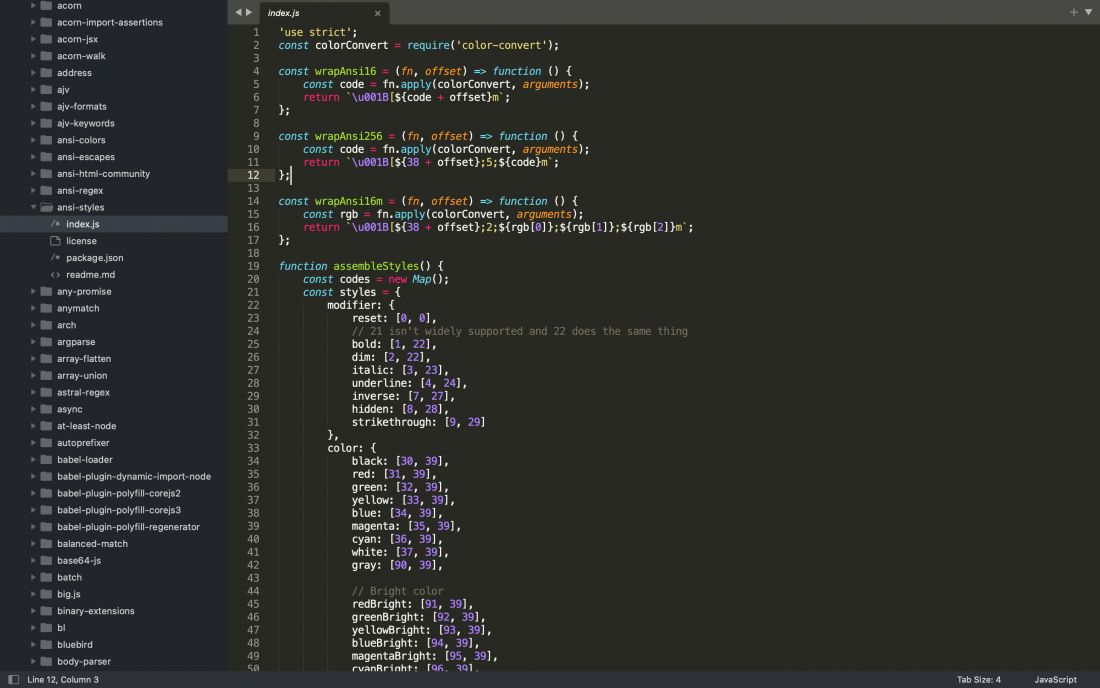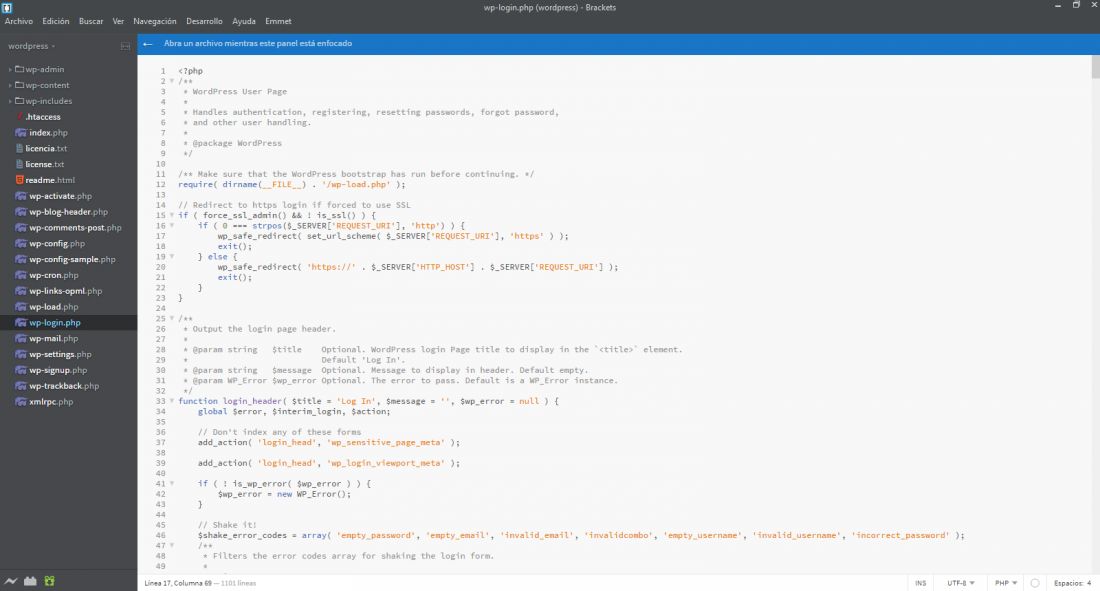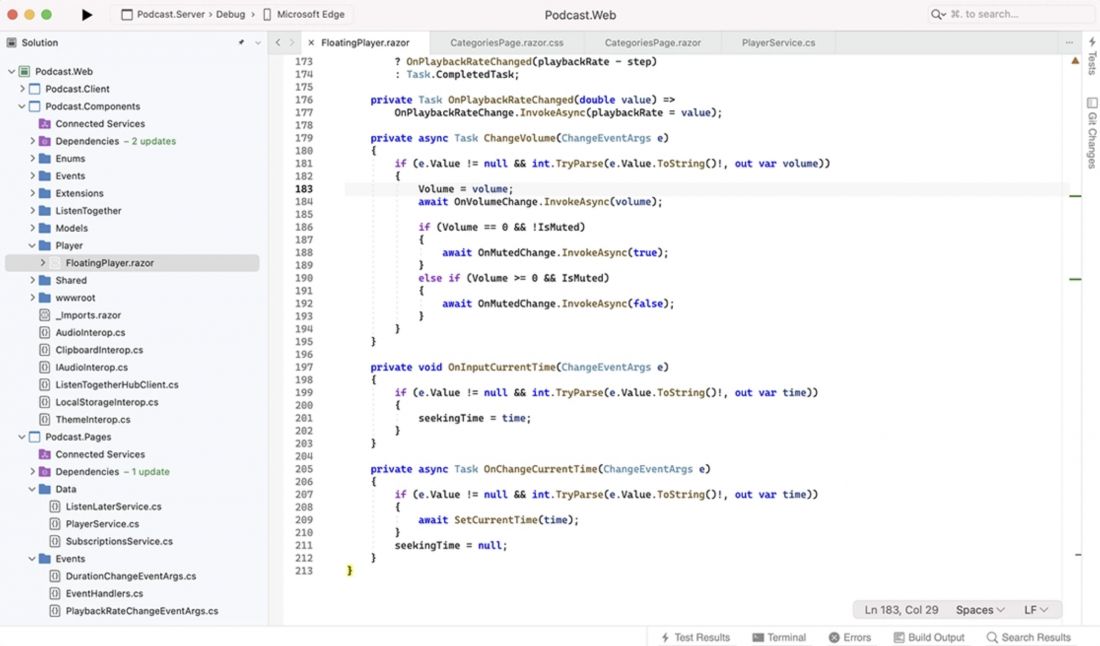Top 10 Code Editors and How To Pick the Best for You
A code editor is a software application specifically designed for editing source code. This is the 10 most popular code editors with features, strengths, weaknesses, and distincts.

In this article
What is a code editor
Code editors help developers write and maintain code more efficiently by providing a range of features and tools that streamline the coding process. They provides features like syntax highlighting, autocompletion, error checking, and code navigation, which help developers write and maintain code more efficiently.
Code editors have evolved significantly since their inception, with the first widely-used ones like Emacs and Vi being introduced in the 1970s. Today, there is a vast range of code editors available, catering to various programming languages, platforms, and user preferences.
Some of the core features of a code editor include:
Syntax highlighting
Code editors display different parts of the source code in different colors or styles, making it easier to read and understand the code. This helps developers quickly identify keywords, variables, comments, and other elements within the code.
Autocompletion
Code editors often provide suggestions for completing code elements, such as keywords, variable names, or function names, as you type. This feature can speed up coding and help prevent typos or syntax errors.
Error checking
Many code editors can identify and highlight syntax errors or potential issues in the code, helping developers find and fix problems more quickly.
Code navigation
Code editors often include features that make it easier to navigate through large codebases, such as the ability to jump to the definition of a function or variable, or to search and replace text across multiple files.
Code formatting
Code editors can automatically format and indent code according to a set of customizable rules, ensuring consistent styling and improving code readability.
Integration with version control systems
Code editors may offer built-in support for popular version control systems like Git, allowing developers to manage code changes and collaborate more effectively.
Extensibility
Many code editors are highly customizable and offer extensive plugin or extension ecosystems, enabling developers to tailor the editor to their specific needs and preferences.
The history of code editors
Code editors can be traced back to the early days of computer programming when developers used basic text editors or punched cards to write code. As programming languages and computing environments evolved, so did the tools designed to facilitate code editing. Here's an overview of the major milestones in the history of code editors:
Late 1960s
Line editors like TECO and QED emerged as the earliest code editors. They allowed users to edit individual lines of text, one at a time, through a command-line interface.
1970s
The development of screen editors marked a significant improvement in code editing. Screen editors allowed users to edit text directly on the screen, rather than line-by-line. Two of the most influential screen editors created during this period were Vi (1976) by Bill Joy and Emacs (1976) by Richard Stallman. These editors introduced features like syntax highlighting, search and replace, and keyboard shortcuts.
1980s
During this time, Integrated Development Environments (IDEs) emerged, combining code editors with additional tools like compilers, debuggers, and version control systems. IDEs, such as Turbo Pascal (1983) and Microsoft Visual Studio (1997), offered a more comprehensive environment for developing software.
1990s
Graphical user interfaces (GUIs) became more widespread, and code editors started to include advanced features like multiple document interfaces (MDI), autocompletion, and code folding. Popular editors from this period include Notepad++ (1992) and UltraEdit (1994).
2000s
With the growth of the internet and web development, code editors began to focus more on supporting multiple programming languages and offering extensibility through plugins or extensions. Editors like Sublime Text (2008) and Atom (2014) gained popularity due to their customizable nature and support for modern web development technologies.
2010s
The rise of open-source development and cloud-based computing led to the creation of cloud-based code editors like Visual Studio Code (2015), which combined the power of local editors with the convenience of cloud storage and collaboration features.
Throughout their history, code editors have evolved to meet the changing needs of developers and adapt to advancements in programming languages and computing environments. Today, there is a wide variety of code editors available, each with its own set of features, strengths, and weaknesses, catering to diverse programming needs and preferences.
The 10 most popular code editors and their distinctiveness
There is a vast amount of code editors to choose from, and while one editor can be the best for some, others may prefer another. Herr is an overview of the 10 most popular editor and what makes each of them distinct:
(Be aware that software constantly change, so that external information like this may not be 100% accurate and up-to-date. Please visit the editor's website for up-to-date information)
Visual Studio Code (VSCode)

A highly customizable, open-source editor developed by Microsoft, featuring a rich extension ecosystem, built-in Git support, and powerful debugging tools. Developed by Microsoft, highly customizable, with a rich extension ecosystem and built-in Git support.
Strengths
Extensive extension support, frequent updates, built-in terminal, and excellent performance.
Weaknesses
May consume more system resources than lightweight editors.
Link
https://code.visualstudio.com/
Target Programming Languages
Supports a wide range of languages through extensions.
Platforms
Windows, macOS, Linux
Price
Free
Sublime Text

A fast, lightweight, and highly customizable text editor with a vast number of plugins and packages to extend its functionality. Known for its speed, performance, and "Goto Anything" feature that allows fast file and symbol navigation.
Strengths
Speed, performance, and customization options.
Weaknesses
Some essential features require additional plugins, and it is not open-source.
Link
Target Programming Languages
Supports many languages with syntax highlighting and autocompletion.
Platforms
Windows, macOS, Linux
Price
Free / $80 (one-time purchase, with free upgrades within a major version)
Atom

An open-source text editor developed by GitHub that's highly customizable and features a built-in package manager, smart autocompletion, and Git integration. Developed by GitHub, highly customizable, with a built-in package manager and strong community support.
Strengths
Extensibility, built-in package manager, and strong community support.
Weaknesses
Slower performance compared to some other editors and occasional stability issues.
Link
Target Programming Languages
Supports a wide range of languages through packages.
Platforms
Windows, macOS, Linux
Price
Free
Notepad++

A powerful, open-source, lightweight text editor for Windows with support for multiple programming languages, syntax highlighting, and a robust plugin system. A lightweight text editor for Windows with a simple interface and a focus on performance.
Strengths
Lightweight, fast, and resource-efficient.
Weaknesses
Only available for Windows and has a less modern user interface.
Link
https://notepad-plus-plus.org/
Target Programming Languages
Supports a wide range of languages out-of-the-box.
Platforms
Windows
Price
Free
JetBrains IDEs (IntelliJ IDEA, PyCharm, WebStorm, etc.)

JetBrains offers a range of powerful and feature-rich IDEs tailored to specific programming languages or frameworks. A family of powerful IDEs tailored to specific programming languages or frameworks, with advanced code analysis and debugging tools.
Strengths
Advanced code analysis, debugging tools, and excellent language-specific features.
Weaknesses
Can be resource-intensive and might have a steeper learning curve.
Link
Target Programming Languages
Each IDE targets specific languages, such as Java, Python, JavaScript, etc.
Platforms
Windows, macOS, Linux
Price
Free for Community editions; paid Professional editions with additional features (prices vary)
Vim

A highly configurable, modal text editor with a strong focus on efficiency and keyboard navigation. A highly configurable, modal text editor focused on efficiency and keyboard navigation, with a steep learning curve. Can be used remotely over SSH.
Strengths
Highly efficient keyboard-driven editing, extensibility, and available on most platforms.
Weaknesses
Steep learning curve and lacks a graphical interface by default.
Link
Target Programming Languages
Supports many languages through plugins and configuration.
Platforms
Windows, macOS, Linux
Price
Free
Emacs

A highly extensible and customizable text editor, known for its powerful Lisp-based extension language, Emacs Lisp. Highly extensible and customizable, powered by Emacs Lisp, a powerful extension language, and known for its keyboard-driven editing.
Strengths
Extensibility, keyboard-driven editing, and a strong, active community.
Weaknesses
Steep learning curve and can be resource-intensive compared to lightweight editors.
Link
https://www.gnu.org/software/emacs/
Target Programming Languages
Supports a wide range of languages through packages and extensions.
Platforms
Windows, macOS, Linux
Price
Free
Brackets

An open-source code editor developed by Adobe, focused on web development with built-in visual tools, live preview, and preprocessor support. Focused on web development, featuring built-in visual tools, live preview, and preprocessor support.
Strengths
Live preview for web development, lightweight, and extension support.
Weaknesses
Less frequent updates and primarily focused on web development, making it less suitable for other languages.
Link
Target Programming Languages
HTML, CSS, JavaScript, and related web development technologies.
Platforms
Windows, macOS, Linux
Price
Free
Visual Studio (not to be confused with Visual Studio Code)

A full-featured integrated development environment (IDE) from Microsoft that offers advanced debugging, testing, and code analysis tools. Integrated with Microsoft technologies, and offering advanced debugging, testing, and code analysis tools.
Strengths
Powerful debugging and code analysis, wide language support, and integration with Microsoft technologies.
Weaknesses
Can be resource-intensive and may have a steeper learning curve.
Link
https://visualstudio.microsoft.com/
Target Programming Languages
C#, C++, VB.NET, F#, and others, with extensibility for more languages.
Platforms
Windows, macOS (Visual Studio for Mac)
Price
Free for the Community edition; paid Professional and Enterprise editions with additional features (prices vary)
Xcode

Apple's official IDE for macOS, primarily used for developing applications for iOS, macOS, watchOS, and tvOS, and featuring powerful debugging and code analysis tools.
Strengths
Integrated with Apple development tools and platforms, powerful debugging, and code analysis.
Weaknesses
Only available on macOS and primarily focused on Apple platforms.
Link
https://developer.apple.com/xcode/
Target Programming Languages
Swift, Objective-C, and others.
Platforms
macOS
Price
Free
Code Editor Comparison Table
| Editor | Customizability | Language | Extensibility | Target | Platform Support | Price |
|---|---|---|---|---|---|---|
| Visual Studio Code | High | Wide | High | General Programming | Win, macOS, Linux | Free |
| Sublime Text | High | Wide | High | General Programming | Win, macOS, Linux | $80 (one-time) |
| Atom | High | Wide | High | General Programming | Win, macOS, Linux | Free |
| Notepad++ | Moderate | Wide | Moderate | General Programming | Windows | Free |
| JetBrains IDEs | High | Language-Specific | High | Language-Specific Devs | Win, macOS, Linux | Free & Paid |
| Vim | High | Wide | High | Keyboard-Driven Editing | Win, macOS, Linux | Free |
| Emacs | High | Wide | High | Keyboard-Driven Editing | Win, macOS, Linux | Free |
| Brackets | Moderate | Web Development | Moderate | Web Developers | Win, macOS, Linux | Free |
| Visual Studio | High | Wide | High | Microsoft Tech Devs | Windows, macOS | Free & Paid |
| Xcode | High | Apple Platforms | Moderate | Apple Platform Developers | macOS | Free |